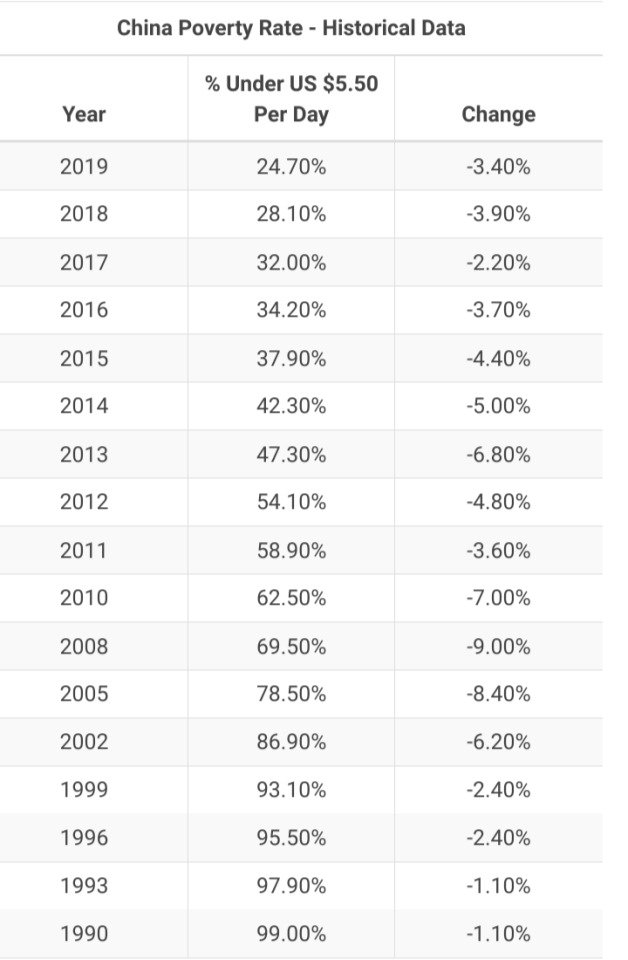#Rise&Decline
Explore tagged Tumblr posts
Text






Idk what to caption this uhh ninja go brrrrr
#you can see the quality declining#I've been drawing them since yesterday#zane looks so ugly </3#i wrote down ages for them but forgor#ninjago#ninjago dragons rising#dragons rising spoilers#I'm never sure if i should tag my posts as spoilers#ninjago lloyd#ninjago kai#ninjago nya#ninjago zane#ninjago cole#ninjago jay#blue's doodles
864 notes
·
View notes
Text


A halloween family reunion - part 2
Part 1 - Next
The grandmothers have arrive, people. I repeat, the grandmothers have arrive.
I designed Grandma Draxum for a comic based on @thedawningofthehour description for her fic, and ever since then I've wanted to include her in something else.
COMISSIONS INFO
-
-
-
#By the way#I made a mistake#Donnie should say#'And when we tried to politely decline#' I ended up losing the when unintentionally. Sorry.#rotmnt leo#rottmnt raph#rottmnt mikey#rottmnt donnie#baron draxum#tmnt 2018#tmnt 2k18#rottmnt#rise of the tmnt#rise of the teenage mutant ninja turtles
233 notes
·
View notes
Text
the new sigiswald POV short story in hanne5 just convinces me further that he and dietelinde would've made the perfect couple. oh my god, they would've been so good (terrible) together. *sigh* i've tried so hard to create the AU where it happens, but kazuki-sensei plotted this thing too tightly!!! things just fall apart too quickly if i try to make it happen. XD
#ascendance of a bookworm#like it's either gotta be that sigiswald believes that dietelinde is going to get the grutrissheit so he gets engaged to her#but since she can't get the grutrissheit there's no way the marriage would actually go through#plus the lanzenave invasion would happen before they could marry so that option is out#or the other option is trauerqual decides to marry sigiswald into ahrensbach instead of hildebrandt#which is more plausible because you could say it's because anastasius's engagement to eglantine cinched him the zent's seat#but then you gotta kind of handwave the existence of nahelache#or kill her off???#plus i just can't picture sigiswald NOT making a big fuss about first losing the zent seat and then being forced out of the royal family#he would not go quietly#but it is fun to imagine him getting embroiled in the lanzenave and georgine plotting#you can make it happen if you completely erase a huge part of the plot#such as the decline of ahrensbach#like maybe kill off georgine after the birth of dietelinde??#so then ahrensbach is able to rise in position above drewanchel leading to dietelinde being chosen over adolphine#to marry a prince#long story short it's very difficult to make it happen within seriously altering some aspect of the characters plot or world!
23 notes
·
View notes
Text
By: Ryan Burge
Published: Oct 3, 2024
Generating a graph that helps us understand the religious composition of just 18 countries is a Herculean task, as I found when trying to do just that with the Global Attitudes Project from Pew. In the United States, it’s pretty simple to throw together four or five categories that encompass almost all of our religious diversity - Protestant, Catholic, atheist, agnostic, or nothing in particular. Those five labels will fit at least 80-90% of the residents of most parts of the United States. Of course, there are outliers like Utah and its significant Latter-day Saint population. Yet, despite the fact that we have Lutherans in some parts and Southern Baptists in other areas - American religion falls into just a handful of broad categories.
When I went to try and visualize the religiosity of the countries that were included in this recent dataset that was published on the Association of Religion Data Archives (ARDA), I had to rethink how many categories were necessary and how many groups could just be combined into a “all others” category. This is my best attempt at that after writing about four hundred lines of computer code.

There is a lot going on in the world of religion when you compare just this dozen and a half countries. Of course there are many that are dominated by Protestants and Catholics. For instance, 96% of Poles say that they are members of the Roman Catholic Church, as do 67% of Italians and 61% of Hungarians. But there are also lots of Catholics in Spain (54%), Belgium (51%) and France (41%). On the other hand there is not a single majority Protestant country in this group of eighteen. Sweden comes the closest at 45%, and there are a few clustered around 25-30% (UK, Germany, Australia).
What about non-religious places? What is striking to me is how few of them have a big chunk of atheists - France leads the way at 26%, followed by the Netherlands at 22%. Yet, there are a lot that fall between 10% and 20% - UK, Sweden, Spain, South Korea, Italy, Germany, Canada, Belgium, and Australia. The number of agnostics in a country tend to be strongly related to the share who are atheists, too.
But then there are the outlier countries. For instance, 68% of Malaysians say they are Muslim. Nearly 90% of the country of Greece are part of the Orthodox Christian faith and 38% of the Japanese say they are Buddhists. And I would be remiss to not point out the incredible religious diversity of Singapore, where no religious group makes up more than 30% of the population. It’s 17% Protestant or Catholic, 21% Muslim, 29% Buddhist, and 23% non-religious. That’s a whole lot of larger religious groups at relative parity in terms of size.
But I wanted to move a step beyond that and focus on some other really intriguing questions about the role that religion plays in the personal lives of each respondent. And also how important they think religion is in terms of a well-functioning society. Let me start by showing you how people responded to the question, “How important is religion in your life?”

From this angle, Australia is the least religious country in the dataset. Nearly half of folks say that religion is “not at all important” (47%), but don’t miss out on Japan. While only 30% say that religion is not important at all, another 37% chose the “not too important” option. That puts it on par with Australia. Almost all the European countries fall between 30% and 40% on this metric. The country that is easily the most religious from this data is Malaysia with 84% of folks living there saying that religion is “very important” to them. That’s double the rate of the next country - Singapore where just 42% chose the ‘most important’ response option.
Of the eighteen countries in total, seven of them are more likely to say “somewhat” or “very important” than they are to choose the bottom two response options. There’s a nice mix of regions there, though. You have Italy and Greece, but also Israel, Singapore and Malaysia. It’s just not so simple to say that one region of the world is really religious - it very much matters what country we are talking about.
Let’s take this a step further by looking at this religious importance question through the lens of age groups. What I am really interested in is tracking how quickly religion will continue to decline in the future in countries outside the United States. So, I calculated the share of each age group in each country that said that religion was not important all.

One thing I can say without a doubt - older people put a higher value on religion compared to younger folks. You can see that by looking at the 65 and older group. In most countries, less than 20% of those people say religion is not important at all. When you look at the younger age group, you can see the overall percentages are a whole lot higher. Religion is clearly fading in a macro-level sense.
What also stands out to me is that there isn’t a huge jump from one age bucket to the next, it’s just a really incremental slide away from religious importance. For instance, in the Netherlands, the percentages go like this: 47% → 42% → 36% → 29%. Every successive age category is five or six points less likely to place no importance on religion. Generally speaking, the trend is maintained in this data. Inside each country, younger people are less religious than older people. It's just that the baseline tends to be different based on the overall religiosity of the country.
But to simplify this analysis, I wanted to show you the share who said religion is not important at all in the youngest age group and the oldest age group side by side per country. This really illustrates how much religion is declining across generations in some places.

One interesting observation: there are two countries in which the younger generation is actually more religious than the older generation. In Belgium, 32% of retired folks say religion is not important at all. It’s only 27% of people between the ages of 18-29 years old. Maybe there’s a religious resurgence in Belgium. That’s not something I have seen reported on by any outlets. Also, young Israelis are slightly more religious than the oldest Israelis. The difference here is just two percentage points, but it’s also worth noting that the country of Israel is a whole lot more religious than the average country in this dataset.
Which countries are experiencing huge drops? We have to talk about South Korea. Among South Koreans who are at least 65 years old, just 10% say religion is not important at all. Among the youngest adults in that country a whopping 42% place no importance on religion. That 32-point gap is the largest in the dataset. The other countries that have a huge generational gap are Japan at 25 points while Hungary and Spain are at 23 points.
What strikes me also is looking at the countries that are the least religious in the aggregate. Take note of Australia and Sweden. In both those cases, young adults are incredibly irreligious. But it’s not like the older generations in those countries are highly devout, though. For instance, 38% of Australians who are 65 years old or more say religion is not at all important. If you compared just the oldest Australians to the entire sample from every other country, they would only trail Sweden and the Netherlands for the mantle of ‘least religious.’ It’s quite stunning just how irreligious Australia is when looking at this data.
There’s another battery of questions in this data that I thought were incredibly telling about how people in these countries see the importance of religion to a functioning society. Respondents were asked how important a bunch of issues were to being good members of a society. There were questions about voting, reducing climate change, joining demonstrations, paying attention to current events, and getting the COVID-19 vaccine. I am showing you the share who said that each activity was very important across all 18 countries.

The activity that clearly scores at the top in most countries is voting. But there are others that also tend to do well. For instance, reducing climate change was seen as very important by huge chunks of folks in European countries like Belgium, France, Germany, Greece, Spain, and Italy. It’s fascinating to see which countries don’t put a ton of emphasis on environmental concerns. In Israel, just 28% of respondents said it was very important. There was also significant positive sentiment toward getting the COVID-19 vaccine. In most countries, a majority of folks said that being vaccinated was very important to being a good member of a society.
Where does regular religious attendance rank across these countries? In short - very low. There is a total of one country where it scores in the top 3 activities and that’s Malaysia, which as you can recall, was easily the most religious country in this survey. In many countries, the share who say church attendance is a vital part of being a good citizen is below 20%. In Japan it’s the absolute lowest at just 5%, followed by Sweden at 6% and Australia at 7%. It’s fair to say that they really don’t value religious service attendance in those countries.

Let me just zero in on that question about the role of church attendance in being a good member of society. This time I calculated the share of each country who said that religious attendance was not important at all. What we find here is pretty similar to the prior graph. Over half of Australians say that attending church is not at all important to being a good member of society, it’s 50% of Swedes and 45% of Spaniards. In fact, most European countries in this data score at least 40% on this metric.
The countries at the bottom of the graph are Malaysia and Singapore. I think it’s interesting to compare them to the country of Japan, which scores in the top five. Just because these countries come from the same broad region of the world doesn’t mean that they have the same general approach to religion. That’s also true when comparing a country like Poland to most of its European neighbors. Poland is still a strongly religious country - which stands in stark contrast to other countries in the region.
It’s always nice to broaden our perspective and try to understand the contours of religion outside the United States. There’s a clear sentiment in a lot of these countries that religion is just not an essential pillar to a functioning society. It ranks near the bottom when compared to things like staying abreast of current events or tackling climate change in a lot of countries in this dataset.
This data clearly points to the conclusion that in the case of almost all of these countries in the survey that they will continue to move away from religion in the decades to come. Young adults are much less religious than their parents and grandparents and generational replacement will continue to secularize these countries for the rest of the 21st century. Whether Belgium is just an outlier or represents a reversal of this trend, it is too early to tell.
==
Reminder: an "agnostic" is an atheist who won't admit they're an atheist.
#Ryan Burge#decline of religion#rise of the nones#irreligion#no religion#atheism#religion#church attendance#religion is a mental illness
8 notes
·
View notes
Text
Raph post Kraang body hcs
- he’s fully blind in his right eye
- his veins are purplish reddish at spots where the infection was most prominent (arm, chest, face)
- his right arm shakes and he has various levels of numbness throughout, pain is present when numbness subsides
- his motor function is very weak in his right hand (he has to learn how to be dominant with his left hand)
- horrible migraines that can make him bed ridden and unable to move
- initially he couldn’t use his right arm and couldn’t even move for awhile. Remember the Kraang took hold of him fully and for a lot longer than anyone else, he wouldn’t just leave with a scratch on his eye
- hears voices in his head and sometimes talks to them if he’s alone
#rise Raph#rottmnt Raph#raphael hamato#sins Raph#need more hcs of him post Kraang infection; I love how Donnie and Leo are acknowledged#but let’s not act like Raph wouldn’t have had lasting damage compared to them considering the length of time the Kraang had a hold on him#I like to think Donnie also hears voices too#both Donnie and Raph becoming immune to certain diseases but other diseases they’re especially susceptible to due to the Kraang >>>#the hc that Raph always dies first of the brothers is intense but let’s take it up a notch#-> the Kraang infected him for too long and his mind and body is slowly eating itself alive thus he dies young compared to them#Donnie being the second to die is always really sad too so let’s add that hc to Donnie but he lasts a lot longer than Raph#Raph leaving everyone behind because of the mental and physical decline; he becomes more animalistic like how he is when he’s alone#so he isolated himself and dies alone
7 notes
·
View notes
Text
Anyone else in Germany currently uuuuh. Kinda alarmed.
#started the new year with floods#one week later farmer protests that get hijacked by the right#same week some secret ethnic cleansing plans get leaked#in 4 days we could be seeing a fascist decline every 8 hours in 7 days were gonna witness a double event#german stuff#me watching historians who specialise on rise and spread of facism analyse this: hm. bad.
23 notes
·
View notes
Text
media literacy is the next term getting put on the shelf
#so many people are throwing it around now its starting to lose meaning#people will be like 'omg no media literacy' and then completely misinterpret what theyre talking about anyway#its over pack it up#as a media analysis girlie it hurts me to do this but i cant bear to see the term anymore makes me roll my eyes now#'media literacy rates are declining!' and its a post about how illiteracy is on the rise#like thats not media literacy babes thats the ability to read at all#cant even talk about the ability to analyze text when people cant get past the first step: reading#it speaks
42 notes
·
View notes
Text

Tis from quite a while ago but... The jherii brainrot is leaking back in again so i thought id share again
Drew it in the style of hugotendaz cuz i rly love his work lol
#my art#dead rising 3#dead rising#Jherii#Jherii gallo#omw to bring the jherii gallow tag to life with my mental decline lmao#fanart#dead rising fanart
29 notes
·
View notes
Photo

Απείρους τε είναι κόσμους και γενητούς και φθαρτούς.
- Democritus
There are countless worlds both born and perishable.
#democritus#greek#classical#society#change#civilisation#europe#western society#decay#decline#rise and fall#the west#heritage#tradition
102 notes
·
View notes
Text
Saw some comments about this so I'm here to set the record:
War - Barbie
Death - Oppenheimer
Famine - Morbius
Pestilence - Minions: The Rise of Gru
Barbie has always been at war. Its fought the patriarchy, camp-hating critics, and now its fighting to win a box office record. Barbie fans are the ones that sparked and fueled the competition with Oppenheimer, because at their core, every fan of Barbie is a warrior.
Speaking of, though Oppenheimer is about an event occurring during a war, its specific focus was not on the actual fighting but on the death toll left from the bombings on Hiroshima, which is known as one of humanity's greatest loss of life tragedies. Oppenheimer focused on the impacts of war because of how much death it caused, thus making it Death more so than War. It also was very passive to the Barbenheimer battle, as more an after thought that would be a testament to the event rather than an active player (as is death in the presence of war). Oppenheimer's significant lack of push and attention in the wake of Barbie's explosive reception is very similar to that of the quietness of death after a battle, especially considering Barbie ended up winning. The victor of the war will tower over the dead who have lost.
Morbius is Famine. It received little to no genuine reception following its announcement, and became a laughing stock at the box office. Morbius was a tremendous flop, so starved and desperate for the nourishment of audience purchases that it opened in theaters a second time when the unsubstantial potential for sales presented itself. It is to be stuck in an endless loop of starvation, so desolate and empty it ended up in the burial grounds of Netflix.
The Rise of Gru follows a diseased lineage that has plagued the movie industry with its repetitive filth. It is a pestilence which poisoned our media supply until there was nothing left but mediocre remakes and sequels. The final nail in the coffin before the movie industry was so riddled that we now turn towards television and content creation far more than theater releases.
#thank you and good day#barbie#barbie movie#barbie 2023#oppenheimer#oppenheimer movie#oppenheimer 2023#morbius#morbius movie#minions the rise of gru#the four horseman of the apocalypse#fyi the comment was about which Horseman could be attributed to which of the four signifiers of Hollywood's decline
25 notes
·
View notes
Text
From 1990 to 2019, the People's Republic of China has gone from a Poverty rate of 99%, to a poverty rate of less than 25% in just 29 years.
And just in the period of time Xi Jinping has been General Secretary of Communist Party of China, or the CPC, the Poverty rate in China has halved.

Poverty in that time in the US has been highly unequally distributed, with poverty rates increasing in some areas, decreasing in others, but largely remaining in similar territory since the 1970's. But the larger context shows a considerable destruction of wealth depending on when you were born with poverty rates lowest for those 65 and over, with much higher poverty rates among children.
The pattern suggests a dichotomy between the rapid rise of China and its attending decline in poverty, versus a slowly declining United States and the associated increases in poverty on younger generations. Though again, it depends largely on the state in which you live and how much your state invests in anti-poverty programs.
#rise of china#poverty in china#poverty in the us#poverty in america#poverty#poverty rate#fighting poverty#china news#us vs china#neoliberalism#us imperialism#us hegemony#us empire#empire in decline#socialism#communism#marxism leninism#socialist politics#socialist worker#socialist news#socialist#communist#marxism#marxist leninist#progressive politics#politics#us politics#us news#us poverty#neoliberal capitalism
24 notes
·
View notes
Text
i'm genuinely super curious to see how roundsey tickets are now VS before The Roundsey Crown Incident, i know it kinda depends on the prizes but i feel like i'd usually see more than 400k tickets for a sprite..?
#i have opinions. i am not saiyng them though. i already said them on my main lawl also im just some guy so my opinion dont mean much#fr#flight rising#<- tagging bc i wanna see if other ppl have an answer to if the amount of tickets feels like it's declined or not since this whole situatio#in particular i will be very curious to see how many tickets the next gilded crown raffle gets VS how many the last one got#chimechatter
6 notes
·
View notes
Text
Tomshiv stocks after ep 7: 📈
Tomshiv stocks after ep 8: 📉
#breaking news: after a steady decline and a sharp drop in Tomgreg stocks after last week's episode#there has been a sharp rise in Tomgreg stocks after episode 8 whereas Tomshiv that has been gaining has sharply dropped!#tomgreg#lol#im just having fun now#succession hbo
49 notes
·
View notes
Text

"It only takes one generation refusing to serve god for the next generation to know nothing about him."
Today's apostates and "nothing in particular"s will be the parents of tomorrow's atheists.
#disbelief#no gods no masters#rise of the nones#empty the pews#decline of religion#no religion#irreligion#religion is a mental illness
69 notes
·
View notes
Text
Hot take but instead of CGI, anime should go back to more retro style animation, like we should totally bring back bold, dynamic animation and imitation cel-shading and bold outlines and rich details and unique designs because that’s what the modern anime scene needs more of and I just know that retro style animation would look absolutely amazing with modern technology
#my brainpoops#truth be told I’m having a little too much fun using retro style flourishes in my art lately and it’s making me think things#well I suppose a big part to play in the rise of cgi and the decline in 2D animation has to do with overproduction being a big problem#especially with the whole thing with seasonal anime and increasing demand for content#anime has become more of a product than anything and because of that shift in attitudes from the audience and major studios in accordance#the focus has shifted from crafting a work with effort and passion#to creating a product to be consumed#and that consumption and the desire to consume puts more strain on studios to keep up and continue making anime#you only have to look at not only the decline in overall visual quality in a lot of modern anime nowadays#as well as animators actively coming out and voicing their struggles#to see that#as well as the matter of homogeny and overall same-ness#with more deeper and more unique stories either becoming sleeper hits or being swept under the rug in favour of more mainstream fare#look it’s just my personal feelings/opinions#let’s just say it was the golden age of anime for a reason#and I don’t think we’ll ever hit that peak again#okay rant over#but I guess the same could be said for a lot of modern media too#90s anime
7 notes
·
View notes
Text
dsmp coming back so suddenly is really hard for me tbh because I know for a fact that my love of the characters is coming back. and I know for a fact that nobody around me will so much as breathe in my direction if I bring it up.
#“oh what scenes do you wanna reference” TOMMYS EXILE.#I WANNA REFERENCE TOMMYS CHARACTER#AND HIS INTERESTING DECLINE#HIS RISE AND FALL#AND HIS SECOND RISE#SUE ME
2 notes
·
View notes